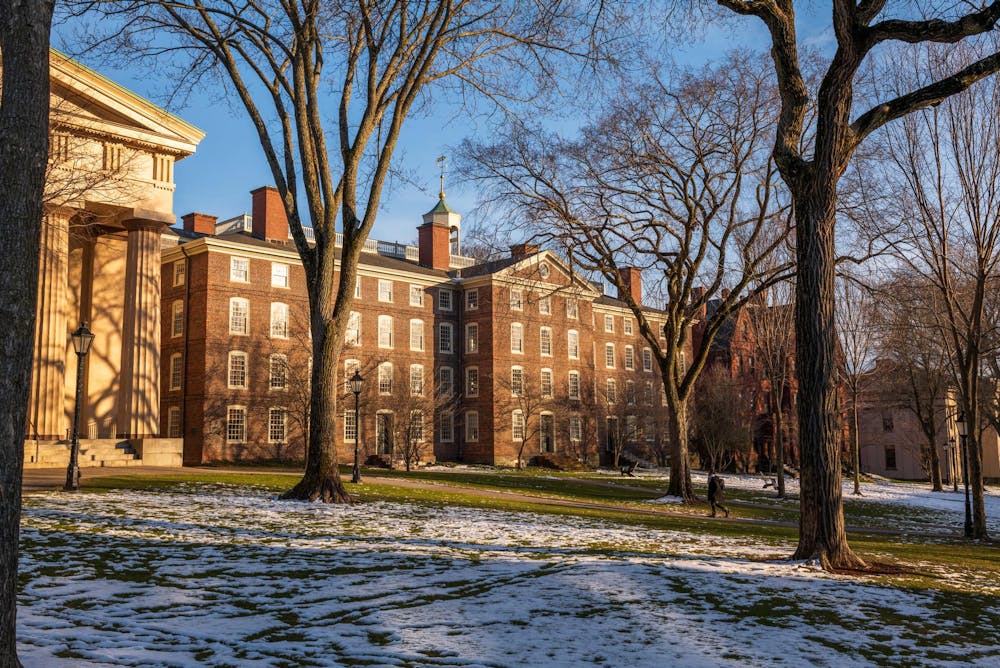Follow The Herald’s latest coverage on how the Trump administration is impacting Brown here.
Brown filed a lawsuit Monday against the National Institutes of Health in an attempt to stop a cut to their federal research funding, arguing that it violates federal separation of powers and strips research institutions of congressionally appropriated funding.
The suit is led by the Association of American Universities, the American Council on Education and the Association of Public and Land-Grant Universities, encompassing dozens of higher education institutions. Brown, along with 12 other universities, also signed on to the suit.
“This action is ill-conceived and self-defeating for both America’s patients and their families as well as the nation as a whole,” the ACE, AAU and APLU wrote in a Feb. 10 statement.
The lawsuit comes after the NIH announced Friday that it was making cuts to federal funding for research projects, limiting “indirect costs” to 15%. These indirect costs include fees that are not directly related to the research, such as facility fees, electricity and other administrative costs.
The plaintiffs called this action “an affront to the separation of powers” and “flagrantly unlawful” in the lawsuit filed in the U.S. District Court of Massachusetts.
A federal judge temporarily halted the funding cut in 22 states, including Rhode Island, on Monday in a separate lawsuit filed by a coalition of state attorneys general.
This action follows a series of orders from the White House potentially affecting the University at various levels, including research funding, international students, immigration and diversity, equity and inclusion programs.
The cut to research funding “would force many of Brown’s current research projects and clinical trials in medicine and health to cease abruptly,” President Christina Paxson P’19 P’MD’20 and Provost Francis Doyle wrote in a statement sent to the Brown community Monday evening.
The action could jeopardize Brown research focused on issues such as cancer, dementia and mental health disorders. It would also pause clinical trials at or through Brown that provide “life-saving medicines” to patients, they explained.
If the 15% cap on indirect cost rates was implemented in fiscal year 2024, “the University would have experienced a loss of approximately $27 million,” Vice President for Research Greg Hirth ScM’87 PhD’91 said in a declaration advocating against the cut in a separate lawsuit. “For year-to-date FY25 research expenditures, the University would have experienced a loss of approximately $16 million.”
“Members of our community no doubt will be deeply concerned by the potential losses in research, jobs and essential operations that would be put in jeopardy if these directives are permitted to stay in place,” Paxson and Doyle wrote.
Despite their concerns, Paxson and Doyle affirmed that the University will “always follow the law,” in a Jan. 28 statement addressing federal government actions and their impact on Brown.
“But we are also prepared to exercise our legal right to advocate against laws, regulations or other actions that compromise Brown's mission,” they wrote. They also said that a working group, led by Doyle, is closely assessing the orders coming out of Washington D.C.
“We want to make very clear that we do not want any of these outcomes,” Paxson and Doyle wrote in the Feb. 10 statement. “This is why we are doing all we can to advocate against it. But the challenges are real.”
They also instructed researchers planning to submit an NIH grant within the next two weeks to contact Brown’s Division of Research, which will participate in a faculty town hall on Thursday.
The White House did not immediately respond to a request for comment.
“Much is at stake,” Paxson and Doyle wrote in the Feb. 10 statement. “And that’s why we will continue to do what we can to safeguard the people and operations at the core of the work we do every day.”
This is a developing story. Check back for more updates.

Cate Latimer is a university news editor covering faculty, University Hall and higher education. She is from Portland, OR, and studies English and Urban Studies. In her free time, you can find her playing ultimate frisbee or rewatching episodes of Parks and Rec.





